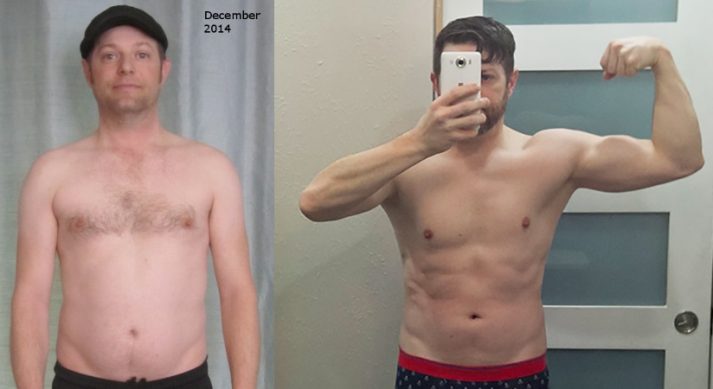
EWG is easy-to-use, thanks to its search bar. You can quickly find any product you want. It's a great tool for anyone looking to make informed choices about food and drink. The app has information on more than 2,500 food and household products, and you can save your favorite recipes for later. You can also view ratings and upload photos for products you want to be included in the database.
The EWG app can be a useful tool if you are concerned about your health. It allows you to search for safety in ingredients in thousands products. This includes personal care products and food. The app lets you scan barcodes to check the safety of products, and it has a comprehensive database of the ingredients in these products. The app allows you to view product ratings and even buy directly from Amazon or Sephora.

EWG also provides information that will help you make informed food choices. This app, which is free, rates food nutrition on a scale from 1-10 and lets you see what you should avoid. The app also has a reference guide for essential oils, which can tell you which Young Living essential oils are best for different types of conditions and what their properties are. Use the app to find out about the ingredients of many products as well as their advantages and disadvantages.
Another helpful app is the Healthy Living App, which breaks down the ingredients in products. This app allows you to determine which ingredients are good for you and which ones are not. You can also compare apps that have similar functionality. Think Dirty is a similar tool, which rates products from one to 10 and gives you information on the ingredients in each product. You can also find out about the health effects of each ingredient.
The Environmental Working Group's Healthy Living App has information on cleaners, something that isn't available in most apps. It's an excellent way to find products that are safe for your family as well as the planet. It's easy to scan the product barcode and get an impartial assessment. When you're searching for a cosmetic, ensure you understand its ingredients. This app will make life easier and safer.

The Environmental Working Group app also lets you check the safety of the food you're eating. It shows you the ingredients and brands that were used in the food items you've selected. You can also compare brands and foods using the EWG Food Scores application. Sunscreen Guide from the EWG is an excellent resource for anyone who wants to make healthy choices. The app has a color coded system to help you find products that are safe for your family.
FAQ
What can I do to lower my blood pressure?
The first thing you need to do is find out what causes high blood pressure. Next, you must determine the cause and take steps to decrease it. You can do this by eating less salt, losing weight, or taking medication.
Also, make sure to get enough exercise. If you don't have time for regular exercise, then try walking as often as possible.
A gym membership is a good idea if you don't like how much exercise your doing. You will probably join a gym where you can meet other people with similar goals. It's much easier to follow a routine if someone is with you at the gym.
How do you get enough vitamins?
Most of your daily vitamin requirements can be met by diet alone. Supplements are an option if you are low in any vitamin. Multivitamin supplements can be taken that contain all the vitamins you need. You can also purchase individual vitamins at your local drugstore.
Talk to your doctor if you have concerns about your nutritional intake. You can find vitamins K and E in dark green leafy vegetable such as spinach, kale and turnip leaves, as well a variety of sweet potatoes and sweet potatoes.
Ask your doctor for advice if you are unsure how much vitamin to take. He or she will recommend the appropriate dosage based on your medical history and current health status.
What are the top 10 healthy habits?
-
Eat breakfast every day.
-
Don't skip meals.
-
Keep a balanced diet.
-
Drink plenty of water
-
Take care of your body.
-
Get enough sleep.
-
Avoid junk food.
-
Do some exercise every day.
-
Have fun
-
Make new friends.
Do I need calories to count?
You might be asking "What is the best diet?" or "is counting calories necessary?" It depends on many factors such as your current health, personal goals, preferences, and overall lifestyle.
The Best Diet For Me - Which One Is Right For You?
The best diet for me depends on my current health status, my personal goals, my preferences, and my overall lifestyle. There are many diets available, some good and others not so good. Some diets work well for some people and others do not. So what do I do? How do I make the right decision?
These questions are addressed in this article. This article begins with a brief overview of the various types of diets that are available today. Then we will discuss the pros & cons of each kind of diet. We'll then discuss how to choose which one is best for you.
Let's first take a look at different diets.
Diet Types
There are three types of diets available: ketogenic, high-protein, and low fat. Let's talk about them briefly.
Low Fat Diets
A low-fat diet restricts fat intake. This is achieved by reducing saturated fats like butter, cream cheese, and other dairy products. They are replaced by unsaturated fats such as avocados, olive oil, and cream cheese. Low fat diets are often recommended to those who wish to lose weight quickly. This diet can cause constipation, heartburn, and stomach problems. In addition, it may lead to vitamin deficiencies if a person doesn't get enough vitamins from their food.
High Protein Diets
High protein diets are known to restrict carbohydrate intake and promote the consumption of proteins. These diets have higher protein levels than other diets. These diets are designed to build muscle mass and help you burn more calories. Unfortunately, they can't provide adequate nutrition for those who eat regularly. They can also be very restrictive so they may not be suitable for everyone.
Ketogenic Diets
Ketogenic diets can also be known as keto diets. They are high in fat and moderate in protein and carbs. They are typically used by athletes and bodybuilders because they allow them to train harder and longer without getting tired. To avoid side effects such as fatigue, nausea, headaches, or other unpleasant side effects, you must strictly adhere to their instructions.
Statistics
- This article received 11 testimonials and 86% of readers who voted found it helpful, earning it our reader-approved status. (wikihow.com)
- Extra virgin olive oil may benefit heart health, as people who consume it have a lower risk for dying from heart attacks and strokes according to some evidence (57Trusted Source (healthline.com)
- The Dietary Guidelines for Americans recommend keeping added sugar intake below 10% of your daily calorie intake, while the World Health Organization recommends slashing added sugars to 5% or less of your daily calories for optimal health (59Trusted (healthline.com)
- WHO recommends consuming less than 5% of total energy intake for additional health benefits. (who.int)
External Links
How To
What does the word "vitamin" mean?
Vitamins are organic substances found naturally in food. Vitamins are essential for our bodies to absorb nutrients from the foods we eat. Vitamins cannot be made by the body; they must be taken from food.
There are two types if vitamins: water soluble, and fat soluble. Water-soluble vitamins dissolve easily when they are dissolved in water. You can find vitamin C,B1 or thiamine, B2 or riboflavin and B3 or niacin, B3/niacin, B6/pyridoxine, folic Acid, biotin and pantothenic Acid as examples. Fat soluble vitamins are stored in the liver and fatty tissue. You can find vitamin D, E K, A, beta carotene, and other fat-soluble vitamins.
Vitamins are classified according their biological activity. There are eight major vitamin groups:
-
A - Vital for normal growth and maintaining good health.
-
C is important for nerve function and energy production.
-
D - Essential for healthy teeth and bones.
-
E - needed for good vision and reproduction.
-
K - essential for healthy muscles, nerves, and bones.
-
P – vital for building strong bones.
-
Q - aids digestion and absorption of iron.
-
R is required for the production of red blood cells.
The recommended daily allowance for vitamins (RDA) varies based on gender, age, and physical conditions. The U.S. Food and Drug Administration has established the RDA values.
For example, the RDA for vitamin A is 400 micrograms per dayfor adults 19 years or older. Because it is essential for the development of the fetus, pregnant women should consume 600 micrograms per daily. Children ages 1-8 require 900 micrograms per day. Babies under one-year old require 700 mg per day. Between 9 and 12 years of age, however, this drops to 500 mg per day.
Children aged 1-18 years need 800 micrograms daily, while children overweight require 1000 micrograms per days. Children who are severely obese or underweight will need 1200 micrograms each day.
Children ages 4-8 years who have been diagnosed with anemia need 2200 micrograms per day of vitamin C.
2000 micrograms per person is necessary for general health. Due to their increased nutrient needs, pregnant and breastfeeding women need 3000 micrograms daily.
Adults over 70 need 1500 micrograms daily, as they lose 10% of their muscle every ten years.
Women who are pregnant or lactating need more than the RDA. Pregnant woman need 4000 micrograms daily in pregnancy, and 2500 per day after childbirth. Breastfeeding mothers need 5000 micrograms per day when breast milk is being produced.